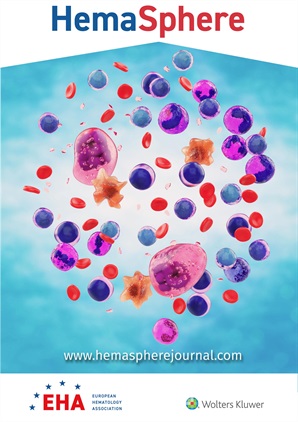PROJECT OVERVIEW
In this project we investigated the requirement of the small phospho-binding adaptor proteins, the cyclin-dependent kinase subunits (CKS1 and CKS2), for maintaining ordered hematopoiesis and long-term hematopoietic stem cell reconstitution.
PROJECT DETAILS
- Research Name The CKS1/CKS2 Proteostasis Axis Is Crucial to Maintain Hematopoietic Stem Cell Function
- Journal Hemasphere
- Year 2023
- Link https://doi.org/10.1097/HS9.0000000000000853

Abstract
Long-term hematopoietic stem cells are rare, highly quiescent stem cells of the hematopoietic system with life-long self-renewal potential and the ability to transplant and reconstitute the entire hematopoietic system of conditioned recipients. Most of our understanding of these rare cells has relied on cell surface identification, epigenetic, and transcriptomic analyses. Our knowledge of protein synthesis, folding, modification, and degradation—broadly termed protein homeostasis or “proteostasis”—in these cells is still in its infancy, with very little known about how the functional state of the proteome is maintained in hematopoietic stem cells. We investigated the requirement of the small phospho-binding adaptor proteins, the cyclin-dependent kinase subunits (CKS1 and CKS2), for maintaining ordered hematopoiesis and long-term hematopoietic stem cell reconstitution. CKS1 and CKS2 are best known for their roles in p27 degradation and cell cycle regulation, and by studying the transcriptome and proteome of Cks1−/− and Cks2−/− mice, we demonstrate regulation of key signaling pathways that govern hematopoietic stem cell biology including AKT, FOXO1, and NFκB, together balancing protein homeostasis and restraining reactive oxygen species to ensure healthy hematopoietic stem cell function.
Authors:
Grey, William1,2; Atkinson, Samantha2; Rix, Beatrice1; Casado, Pedro3; Ariza-McNaughton, Linda2; Hawley, Cathy1; Sopoena, Miriam L.4; Bridge, Katherine S.1; Kent, David1; Cutillas, Pedro R.3; Bonnet, Dominique2
1York Biomedical Research Institute, Department of Biology, University of York, United Kingdom
2Hematopoietic Stem Cell Laboratory, The Francis Crick Institute, London, United Kingdom
3Cell Signalling and Proteomics Group, Centre for Genomics and Computational Biology, Bart’s Cancer Institute, London, United Kingdom
4Bioinformatics Core, The Francis Crick Institute, London, United Kingdom
Received: September 12, 2022 / Accepted: January 30, 2023
Supplemental digital content is available for this article.
Correspondence: William Grey ([email protected]); Dominique Bonnet ([email protected]).